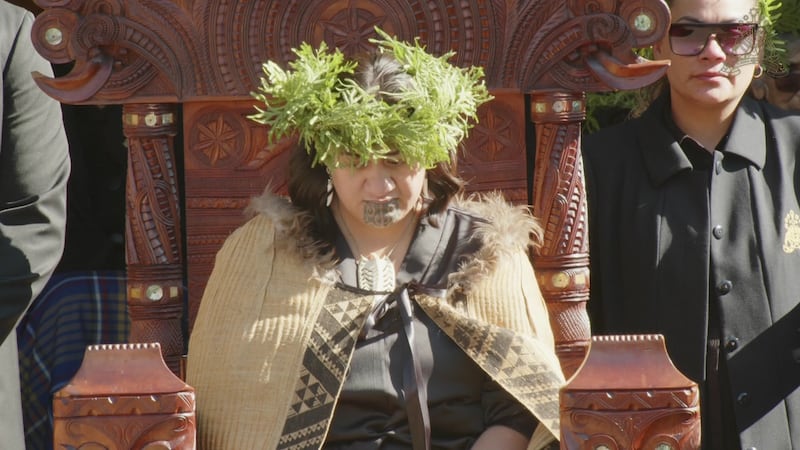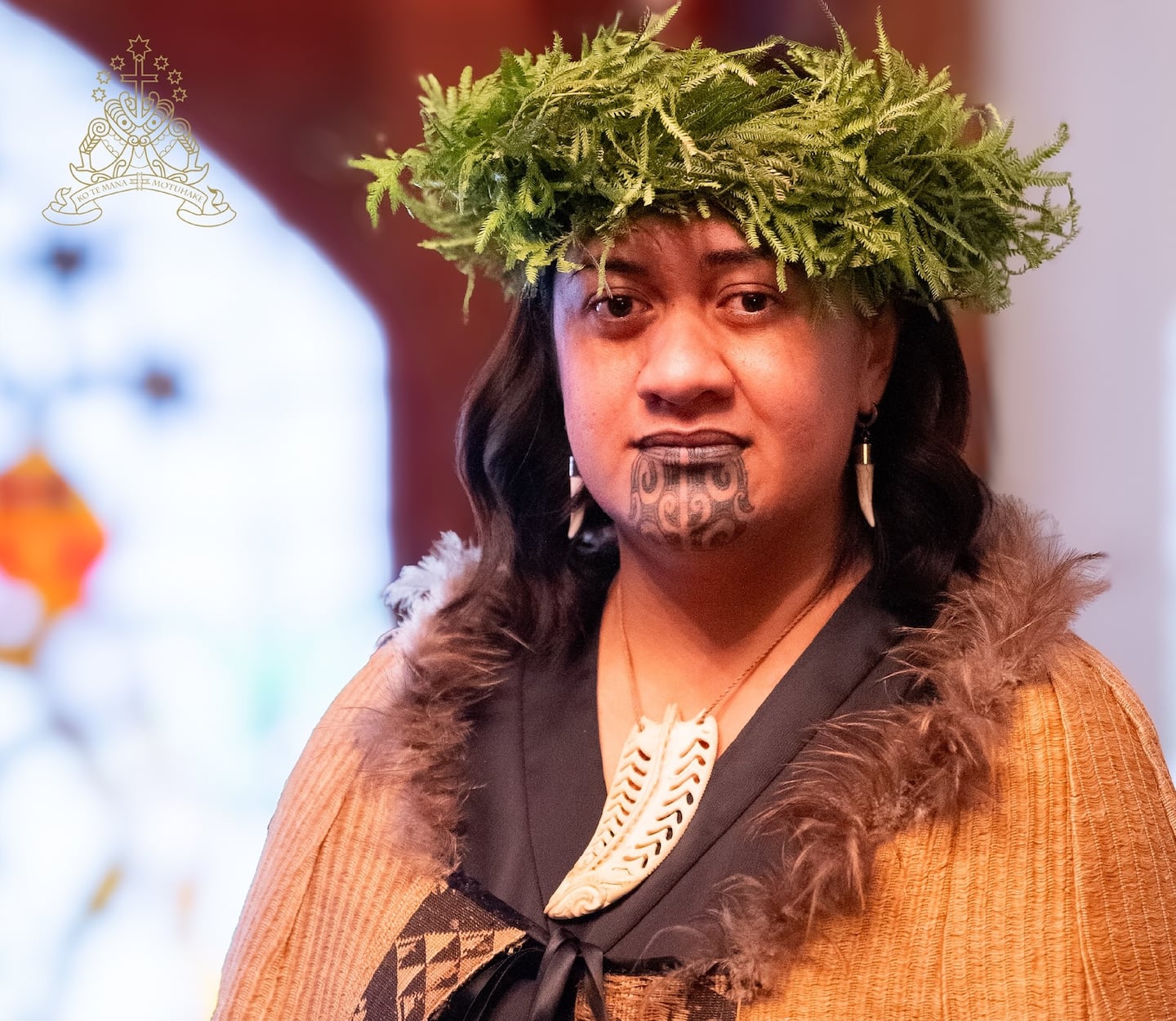It was the dawn of a new era at Tūrangawaewae Marae. With the declaration, “Hei Kuini, hei Kuini, hei Kuini,” the crowd cheered.
There sat Nga wai hono i te po Paki, beside her father’s casket. She wore tauā, a wreath to mourn her dad, made from leaves and fernery. She looked up at the multitudes gathered under the sun in Ngāruawāhia only occasionally, and only briefly.
Her chin quivered when matua Doug Ruki, a rangatira from Ngāti Maniapoto, finished his address - a speech which brought home the reality of this historic occasion. An occasion filled with conflicting emotions of overwhelming grief and undeniable excitement about the new era of a new Queen.
At 27 years old, seven days after the death of her father, Kīngi Tūheitia Pōtatau Te Wherowhero VII, Nga wai hono i te po became the second ever Māori Queen. She is the eighth Ariki Nui, the leader of the Kīngitanga.
The Kīngitanga is a movement, started in 1858, to unify Māori - to assert mana motuhake, Māori self-determination - in the face of colonisation.
That is a kaupapa Nga wai hono i te po takes seriously.
While she enjoyed strong support from rangatira across the country this week, when they met to determine who would take the throne, it was no sure bet that she would one day be Queen.
In 2016, when Nga wai hono i te po was a teenager, most people - including her - assumed that her eldest brother, Whatumoana Paki, would be king.
In an interview for the documentary Behind the Throne, she said she would support Whatumoana to succeed their father.
“It’s hard. It’s hard thinking that one of us, it’s going to be one of us, is going to be put through the same things my dad’s been going through,” she said at the time.
Korotangi Paki, the younger son, also voiced his support for Whatumoana to be king. As did their mother, who said there had been work - at the time - to ensure he was ready to take on the job.
Although there is no requirement for the eldest child of a monarch to take on the role of Ariki Nui, most of the Kīngitanga leaders were first-born. Tūheitia, however, was the third child, but eldest son. And Nga wai hono i te po is the youngest child.
On the prospect of becoming Queen, she said in 2016: “It’s scary.”
But it was a role, Tūheitia, in quiet, started preparing her for.
She has taken on this hugely public role, having kept a relatively low profile.

It was around 2021, during the pandemic, that Nga wai hono i te po started to play a more noticeable role within the Kīngitanga.
She had just finished her masters of arts in tikanga and te reo Māori, at the University of Waikato. As a student, she had excelled and was very active in the Waikato University community.
Her studies in mātauranga Māori gelled well with her love of kapa haka. She has been a regular at Te Matatini, and worked on a cruise ship after finishing high school as a kapa haka performer and leader of the Māori performing arts ope on the MS Noordam.
She gave back to her university, joining the Waikato University Council in 2023 after her father nominated her for the role.
His nomination was another clear signal that Nga wai hono i te po had earned his trust to take on the job of Ariki Nui.
Representing the Kīngitanga, Nga wai hono i te po was also put on the board of the Waitangi National Trust. That’s the group which looks after the Waitangi Treaty Grounds and organises the coming together of the nation for Waitangi Day each year.
But the clearest sign that Nga wai hono i te po was destined to be Queen came in 2022, when she was sent to meet Prince Charles in London.
The meeting was set for 140 years after her great-great-great-great-grandfather, King Tāwhiao, travelled to the UK to meet with Queen Victoria over concerns that her subjects were not honouring Te Tiriti o Waitangi. But officials, back in the 1880s, would not let them meet.
Speaking to Aukaha News in London at the time, Nga wai hono i te po made clear her vision for Māori-Crown relations.
“Ka pono āku kōrero, ko tāku hiahia nui kia whakahokia mai ngā whenua katoa o te Māori ki te Māori,“ she said, asserting her desire that all Māori land be returned to Māori.
She said travelling to the UK, to meet the British royal family, had left her feeling some anger about their colonisation. She questioned why the British had come to steal land from Māori, when there was an abundance of space and resource at their home.
Her meeting with the then Prince of Wales, who also went on to become a king, would be focused on the future, she said. She wanted to talk to him about what they could do to support te ao Māori.
Commentators, on Thursday, predicted the reign of Nga wai hono i te po could intensify the political advocacy that the Kīngitanga has taken on over the past year. Tūheitia became an increasingly vocal leader of the Māori rights movement in recent months, as he criticised the coalition Government for its approach to Māori-Crown relations.
She would bring a youthful perspective, and a different one from many Māori leaders in generations above her.
Nga wai hono i te po was raised in an environment quite different from her predecessors.
She attended kōhanga reo, and was educated deeply in te reo, tikanga, and mātauranga Māori.
She used those skills to start her own career, before turning her attention to preparing to be Queen.
From across te ao Māori, and across Aotearoa, attention now turns to how Nga wai hono i te po will carry the weight of her new role.
She is young, she is confident, and although relatively unknown, there should be plenty of time ahead for the nation to get to know the new Māori Queen.
- Stuff


